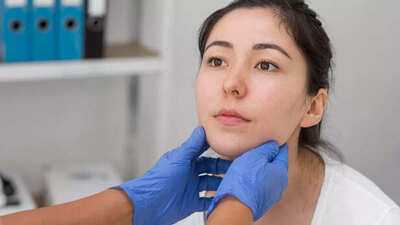Beauty at a Cost: The negative impact of Botox

You might think botox is a easy solution, but proper care and observation is required for wellbeing.
Botox? A quick fix for wrinkles. Right? Let’s find out its negative impact and learn more about Botox effects by fixing it.
The bacterium Clostridium botulinum produces a toxin that is used to make Botox, an injectable medication. By obstructing nerve signals, it can momentarily weaken or paralyze muscles in both medicinal and cosmetic purposes. While medical applications address ailments like excessive perspiration, persistent migraines, neck spasms, and an overactive bladder, common cosmetic uses include the smoothing of face wrinkles like crow's feet and forehead lines.
Do muscles get badly affected?Botox is the process where doctors relax the muscles, but sometimes it relaxes the wrong ones. Due to which the person finds difficulty in closing one eye and trouble in making certain facial expressions.
Although these effects are temporary and can linger for months or weeks. Additionally, your face might look the way you want at that time.
Let’s know the post-botox symptoms
After getting botox, some people face symptoms illness due to injection like fever, headache, exhaustion, or aches in the body.
Even while these effects are typically modest, they can nonetheless cause discomfort, particularly for those who anticipate a quick and easy Botox surgery.
Worried about the post botox problems, here is the solution. Let's find out.
Redness, Bruising, Swelling, and Allergic reactionsBecause Botox is administered with a tiny needle, minor side effects such as minor bumps, bruising, or transient redness and soreness are common. Usually, these go away in a day or two.
Although they are uncommon, allergic reactions might cause swelling around the lips or face, rashes, or itching. Breathing difficulties are very uncommon but dangerous. Before getting Botox, anyone with a history of injection or Botox ingredient allergies should consult a specialist.
Does botox affects mentally?They could feel self-conscious, nervous, or disappointed if the outcomes don't meet their expectations, such as seeming "frozen" or uneven. Botox's transient nature may also lead to a vicious cycle of needing regular touch-ups to preserve a particular appearance, which could result in stress or anxiety related to looks.
Some people report feeling less expressive as a result of Botox's minor reduction in facial movement, which may affect how they perceive their own emotions or how others interpret them. While not everyone experiences this, some people may feel emotionally "distanced" as a result.
In general, a person's perspective, aspirations, and level of communication with their provider all influence how Botox impacts them mentally. The experience can be improved by selecting a qualified professional and setting reasonable expectations.
Looking for solutions, of course this is not a big deal. Botox is seen as a magic eraser for wrinkles, but the side effects are often neglected.
For common reactions like redness or bruises, you can gently apply a cold compress. Some providers may suggest topical anesthetic creams for pain, and it's recommended to avoid alcohol and certain medications like NSAIDs before the procedure to minimize bruising.
For symptoms like fatigue or flu, you can rest and calm yourself down. It will resolve on its own.
Most importantly, prepare yourself mentally and emotionally beforehand, as you are going to change your chosen body part. Be ready to see the changes and stay relaxed while Botoxing. If you experience any severe symptoms like breathing difficulties, vision problems, or a severe allergic reaction, seek medical attention immediately.
Before choosing Botox, consumers should talk to a skilled professional about their expectations, medications, and medical history because everyone reacts differently.
Discover expert advice and the latest updates in Skin Care, Hair Care, Wellness, Dermatology, and more at Stay Young guide to lasting beauty and holistic health!
Frequently Asked Questions (FAQ's)
Is it safe to have Botox?
Yes, Botox is usually safe when administered by a qualified and certified practitioner. It does, however, come with potential risks and side effects, just like any medical treatment.
Does Botox cause pain?
Like tiny pinches, the injections often cause very little discomfort since they utilize a very tiny needle. Afterward, some people experience minor soreness.
Can Botox have an impact on one's emotional or mental health?
Yes, for certain individuals. Results that appear unequal or overly "frozen" could cause worry or disappointment. Because Botox wears off, some people experience pressure to keep the results, which leads to anxiety over looks.
How may I lessen the possibility of unfavorable side effects?
Select a qualified injector, go over your medical history in detail, adhere to the aftercare instructions, and have reasonable expectations about what Botox can and cannot accomplish.
